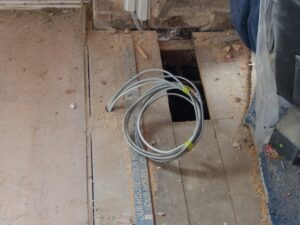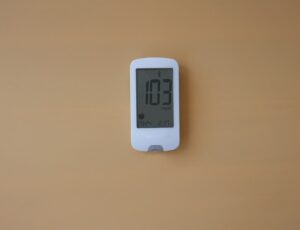Dealing with a clogged drain can be frustrating, whether it’s in your kitchen sink, bathroom sink, or outdoor drains. You can successfully unblock a drain yourself using simple methods and tools commonly found at home. Taking this task into your own hands not only saves you money but also gives you a sense of accomplishment.
Understanding how to identify different types of clogs is crucial. Grease and food particles often lead to blockages in kitchen sinks, while hair and soap scum can create issues in bathroom sinks. By recognizing the source of the clog, you can choose the most effective method to resolve it.
Excel Mechanical is here to support you with expert plumbing services. We pride ourselves on exceptional quality and great value in both residential and commercial applications. Trusting us means ensuring the best possible system tailored to your specific needs and budget.
Identifying Common Causes of Drain Blockages
Understanding what leads to a clogged drain can help you prevent future issues. Here are some of the most common causes specifically for drains in your kitchen sink, bathroom sink, and outdoor drains.
- Food Waste: In kitchen sinks, food scraps, especially greasy items, can accumulate and cause blockages. Avoid disposal of items like eggshells and coffee grounds.
- Hair: Bathroom sinks often face blockages due to hair buildup. Use a mesh drain cover to catch hair before it goes down the drain.
- Soap Residue: Soap can leave behind residue that sticks to pipes over time, particularly in bathroom sinks. Regularly clean your drains with hot water to reduce buildup.
- Tree Roots: Outdoor drains can be obstructed when tree roots infiltrate underground pipes. This issue requires professional intervention for complete removal.
- Mineral Buildup: Hard water can lead to mineral deposits in your pipes. Consider regular maintenance to prevent this issue.
If you encounter persistent blockages, consult with Excel Mechanical. As professionals in HVAC and plumbing services, we focus on exceptional quality and value, ensuring that our solutions fit your individual needs and budget. We’re here to help you maintain a clear drainage system in your home or business.
Initial Steps to Unblock a Drain
Before tackling a blocked drain, it’s essential to gather the right tools and assess the situation accurately. This preparation sets the foundation for successfully resolving the blockage without causing further issues.
Tools and Safety Preparations
Start by gathering necessary tools: a plunger, gloves, and safety goggles. A plunger is crucial for creating the pressure needed to dislodge clogs. Ensure you choose a flanged plunger for maximum effectiveness on drains.
Wearing gloves protects your hands from grime and potential chemicals. Safety goggles shield your eyes from splashes during the unclogging process. You may also want a bucket to catch any overflow or debris that could emerge while you work.
Before starting, check the drain cover. If it’s removable, take it off to directly access the drain. Familiarize yourself with the area to avoid any accidents while you work.
Assessing the Blockage
Carefully inspect the drain to understand the type and extent of the blockage. You may notice standing water, which indicates a significant clog. Start by removing visible debris with your hands, using gloves for protection.
For clogs that seem deeper, use a straightened coat hanger or plumbing snake to probe the drain. This can help determine the blockage’s position and severity. If the clog is stubborn, pouring a mixture of baking soda followed by white vinegar can create a natural reaction to help break it down.
For localized blockages, pouring boiling water down the drain can also be effective. It helps to dissolve grease and soap scum buildup. Keep in mind that heavy clogs may require more intensive effort or professional assistance.
Excel Mechanical is the best option for HVAC and plumbing services, offering exceptional quality and great value for both residential and commercial needs. We work diligently to provide systems tailored to meet your specific requirements and budget.
Natural Remedies for Drain Unblocking
When faced with a clogged drain, natural remedies can be both effective and eco-friendly. Two of the most popular methods include using baking soda and vinegar, as well as hot water flushing.
Baking Soda and Vinegar Method
This method utilizes the chemical reaction between baking soda and white vinegar to help clear your drain. Begin by pouring 1 cup of baking soda directly into the clogged drain. Allow it to sit for about 10-15 minutes to break down any buildup.
Next, follow up with 2 cups of white vinegar. The fizzing action can help dislodge stubborn blockages. After waiting for an additional 15 minutes, flush the drain with boiling water to clear away any remaining debris.
This technique is friendly to your plumbing and the environment, making it a popular choice for routine maintenance. Plus, it often requires ingredients you already have at home.
Hot Water Flushing
Hot water is one of the simplest yet most effective methods for unclogging drains. To start, boil a kettle full of water. Once boiling, carefully pour the hot water down the drain in stages. This helps to dissolve any greasy or soapy residues that may have built up.
For more persistent clogs, consider using a garden hose to flush hot water through the drain. Aim to work from the top down, allowing any remaining debris to wash away.
This method can significantly reduce the build-up over time and is a great way to maintain clear pipes. Excel Mechanical provides professional HVAC and plumbing services tailored to meet your specific needs. Our commitment to quality ensures your plumbing issues are efficiently resolved.
Mechanical Methods for Tough Clogs
When faced with stubborn clogs, mechanical methods can effectively restore flow. Two commonly used tools are plungers and drain snakes, each designed for specific types of blockages.
Proper Use of Plungers
A plunger is your first line of defense against clogged drains. To use one effectively, follow these steps:
- Choose the Right Plunger: A cup plunger works best for sinks and tubs, while a flange plunger is ideal for toilets.
- Create a Seal: Ensure the plunger cups fully cover the drain. If you’re using it on a double sink, block the other drain with a wet rag.
- Plunge Firmly: Push down with enough force, then pull up quickly, repeating this motion. Aim for a rhythmic motion to create suction and pressure, dislodging the clog.
- Check for Success: After a minute of plunging, check if water drains properly. If not, you may need to try other tools.
Augers and Drain Snakes
If plunging fails, an auger or drain snake can tackle deeper clogs. Here’s how to use it:
- Select the Right Tool: For home use, a hand-crank drain snake is often sufficient. A motorized auger can reach further into the plumbing for serious blockages.
- Feed the Snake: Insert the snake into the drain slowly. As it reaches the clog, twist the handle to break apart or grab the blockage.
- Retract and Clean: Once the clog is cleared, pull the snake back while continuing to twist. Clear any debris from the tool before storing it.
With these methods, you can address tough clogs effectively. If you need professional assistance, Excel Mechanical offers exceptional plumbing services tailored to your needs. We strive to provide quality and value for both residential and commercial clients, ensuring your plumbing systems function optimally.
Using Chemical Drain Cleaners Safely
When using chemical drain cleaners, it’s essential to choose the appropriate product and apply it correctly to minimize risks. This section provides vital information on selecting the right cleaner and important safety practices.
Choosing the Right Chemical Drain Cleaner
Selecting the appropriate drain cleaner is crucial for effective results. Look for these features:
- Type of Cleaner: Choose between liquid, gel, or powder forms. Liquid cleaners are typically more effective for tough clogs.
- Pipe Compatibility: Ensure the product is safe for your pipes, especially if they are old. Some chemicals can corrode older plumbing.
- Biodegradable Options: Consider using eco-friendly cleaners to reduce environmental impact. These are generally safer for your plumbing and septic systems.
Before purchasing, read the label thoroughly to understand its intended use. Products designed for specific clogs, such as grease or hair, may work better than all-purpose cleaners.
Application and Safety Tips
Safety should always be your top priority. Before using a chemical drain cleaner:
- Wear Protective Gear: Always put on gloves and safety goggles to protect your skin and eyes from splashes.
- Read Instructions: Follow the manufacturer’s directions carefully, including the recommended amount. Pouring too much can lead to damage.
- Avoid Mixing Chemicals: Never combine different cleaners. This can produce dangerous gases or reactions.
After application, allow the cleaner to sit for the recommended time, usually around 30 minutes. Flush the drain with hot water to ensure complete removal of the clog. For effective plumbing and HVAC solutions, consider Excel Mechanical, where we prioritize quality and value, ensuring your systems meet your needs and budget.
When to Call a Professional Plumber
You might be tempted to fix a blocked drain yourself, but certain situations warrant the expertise of a professional plumber.
Signs You Need an Expert:
- Persistent Blockage: If you’ve tried methods like plunging or using drain rods without success, it may be time to seek help.
- Multiple Drains Affected: A clog in more than one sink or fixture often indicates a larger issue in your plumbing system.
- Foul Odors: Bad smells can signal trapped waste, suggesting deeper problems that require professional assessment.
Frequent Clogs:
If you notice that your sink trap or p-trap frequently gets clogged, this might point to underlying plumbing issues. A professional can provide a thorough inspection.
DIY Limitations:
While tools like drain rods can be effective for minor clogs, they can also cause damage if used improperly. Professionals have the training and tools to handle such situations safely.
Excel Mechanical offers skilled plumbing solutions for both residential and commercial needs. With a commitment to quality and value, we ensure that your plumbing issues are addressed efficiently. If you’re unsure whether you can handle a blockage, consult a professional plumber.
Don’t hesitate to call in experts when your DIY methods fall short. Your plumbing system deserves the best care.




